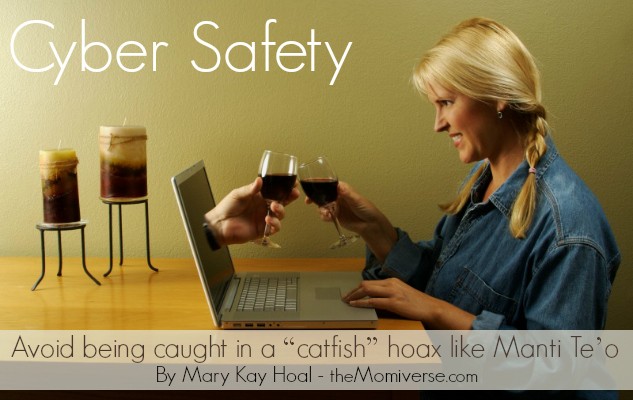
The term “catfish” comes from the 2010 documentary film in which a young New Yorker named Nev Schulman has an online relationship with a woman on Facebook. The documentary reveals how the woman fabricated her entire life on the social network, and when Nev finally made plans to meet her in real life, he realized everything she told him was a lie.
Notre Dame football star Manti Te’o had a similar online relationship with a 22-year-old woman named Lennay Kekua. Throughout 2012, Kekua played with Te’o’s emotions as she fabricated traumatic events in her life, including a car accident that left her in a coma, a diagnosis of leukemia, and eventually her death. In a turn of events, a man named Ronaiah Tuiasosopo told Dr. Phil he pretended to be Kekua and that Te’o had absolutely no role in the hoax.
Te’o’s story is a classic catfish case. That being said, it’s also a case of cyberbullying, or what some state laws refer to as cyber harassment – when someone uses digital communication to purposefully inflict emotional harm.
Anyone can be susceptible to being catfished or cyberbullied. Here are the signs to look for to determine if you or your child may be at risk:
- You’re using social networks like Facebook, Twitter or Tumblr to find people who are interested in dating online.
- You’re dating someone exclusively on the Internet – meaning, you haven’t met them in real life.
- The person you’re involved with typically wants to keep the conversation on chat whenever you request video chat.
Here’s what you can do to avoid becoming a victim:
- Online dating is meant for adults, not kids and teens. There are a number of dating sites like match.com and eHarmony.com that perform background checks on their users.
- As an adult, if you decide to date someone online, regardless of where you meet them, something as simple as a Skype video chat or Facetime phone call can confirm if the person is real.
- Talk to your kids and teens. Dating at the right age should always (and only) involve people they know in real life, never with someone they meet online.
- The social sites to your kids and teens belong should focus on their interests rather than encouragement to date other users. The website Yoursphere.com focuses on providing kids and teens with activities, games and fun things to do that support their interests and engagement in a positive manner.
- Never give out personally identifiable information. It’s why Yoursphere.com doesn’t ask for a kid’s home address, phone number or exact physical location, among other things. The same should hold true for adults. Avoid disclosing information like this even if the website you’re attempting to join asks for it.
- Online bullies and those who want to harass others feed on the emotions of people online. If you publicly announce that you’re depressed or lonely, you’re more likely to be a target of fake solicitations.
Have you or someone you know ever been fooled by someone you met online?
This Week's Articles Read, learn, live
-
 Summertime grilled vegetables
Summertime grilled vegetables
-
 5 Ways to make this summer full of unforgettable family fun
5 Ways to make this summer full of unforgettable family fun
-
 10 Reasons to take a family vacation in Puerto Vallarta
10 Reasons to take a family vacation in Puerto Vallarta
-
 5 Fun tips for spring cleaning with kids
5 Fun tips for spring cleaning with kids
-
 10 chick flicks with New Year’s Eve scenes
10 chick flicks with New Year’s Eve scenes
-
 The day after Christmas: 5 ways to handle the biggest downer of the year
The day after Christmas: 5 ways to handle the biggest downer of the year

{ 1 trackback }